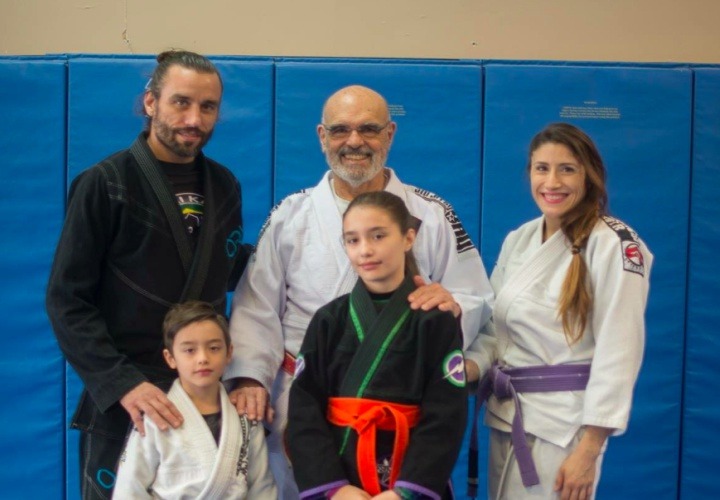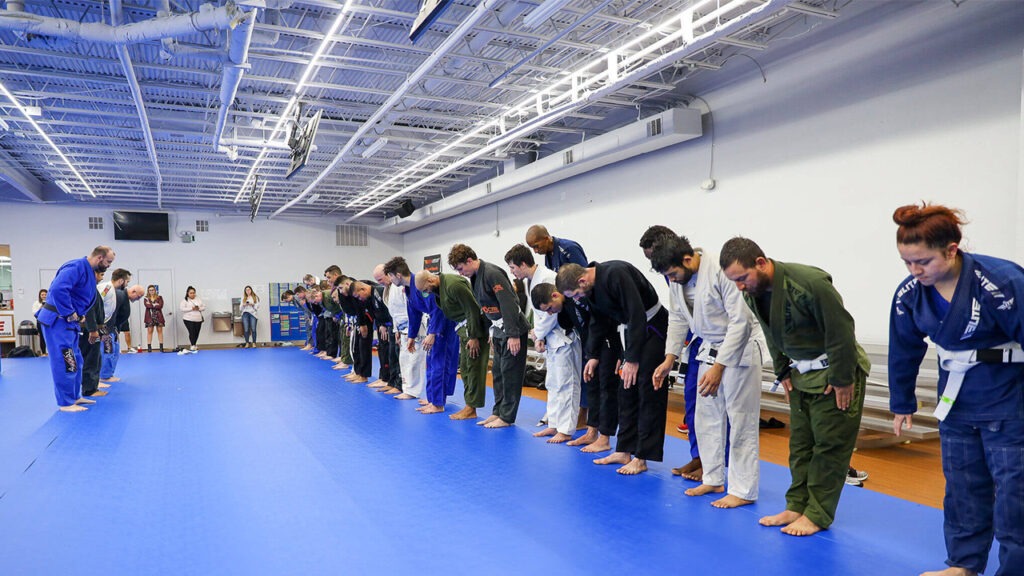
Would you like to do Brazilian Jiu-Jitsu as your full-time job? It would be a dream come true, won’t it? Well, that depends, if we’re being honest. Training Jiu-Jitsu is fun and represents a way to shut everything else that’s happening in your life out. The best form of therapy is mat therapy, However, the moment that your hobby turns into your job, things quickly take on another perspective. While the prospect of teaching BJJ full time might sound extremely appealing, you should be ready for what it really means and requires, if you are to truly enjoy it.
Teaching BJJ is not an easy task. Believe me, I am doing it every day, almost all day long. Jiu-Jitsu is highly addictive and will quickly engulf your life when you start training. However, can you really keep all the “magic” alive when and if you decide to make it a full-time career rather than just a thing you enjoy doing in the afternoons? One thing I will tell you if you’re truly passionate about BJJ is to go for it! It will pay off, and might even turn out to be the dream job you’ve always wanted. But, be warned, BJJ as a job, and BJJ as a hobby are two completely different universes, meaning you need to manage your expectations accordingly.
Teaching BJJ Full Time: The Dream Job?

First of all, unless you have the ability to do BJJ as a job and have a second job as well, then your sole source of income, or at least that major one, will be teaching. That means that just as with every other job, you get all the worries that come with working. Those range between psychological, financial, and in terms of a job in sports, physical aspects. And that is before you even consider all the craziness that comes with running an academy if you have the role of an owner in addition to that of a coach.
All things considered, training Brazilian Jiu-Jitsu for a leaving is most definitely a dream job. You get to roll every day, all day, you get to do morning, afternoon, and evening classes, train with people of all levels, do privets, lead drill and competition classes… In the meantime, you can spend all your time looking at BJJ videos and reading articles since that is a requirement to become better at your job. Sounds too good to be true, and to a certain extent, it is. It all comes down to what you expect to get out of teaching BJJ as a full-time job.
Pros and Cons Of Running A Brazilian Jiu-Jitsu Academy
If you have your own academy, then you’re in for quite a crazy ride. I’m not even going to mention the Covid-19 epidemic, which saw too many academies close their doors permanently, and even some of the biggest one struggle. that’s one of those unpredictable things that you can’t really account for in advance.
What you should know is that running an academy means you spend maybe a third of your time inside the actual academy Yeah, you read that right. In between administrative duties, chores, supply runs, community meetings, and everything else you can and can’t think of, you won’t spend as much time on the mats worry-free as you might’ve thought. That is reality. Moreover, you can expect o take a lot of the work home too, with planning classes, taking care of finances, talking to students, coordinating stuff, working out tournament road trips… the list goes on and on.
Let’s take a look at three of the most important aspects of running your own business, especially a sports-based one:
The Financial Side Of Things

If you are an owner, you’ll have a bunch of financial stuff hanging over your head: leases, monthly fees, administrative taxes, supplies, and a host of other expenses to balance. The upside of being an owner and teacher is that you will make more money compared to teaching at an academy somebody else owns.
That said, teaching BJ jat an academy works the opposite way. You’ll only have classes to worry about, but there’s hardly an option for you to earn more money, regardless of time spent teaching. It all depends on the size and business plan of the academy and is something you should consider if a more lavish lifestyle is what you’re after.
The Psychological Side Of Things
One of the things I noticed when I made the transition to teaching BJJ was how it affected my mindset. I still love BJJ more than anything else, but I definitely see it differently from when I was just training. Having just trained, then worked at an academy for a salary, and finally, owning and running an academy, I can talk about everything that happens along the way.
One thing you can bet on is that your Jiu-Jitsu game will develop and grow immensely. Spending all your time on the mats, putting classes together, answering questions, rolling, and drilling every day is a recipe for success. That said, you won’t look at training with the same crazy enthusiasm and joy you did when you were just a student. At least not every day, especially if you run multiple different groups per day.
Another thing is the tradeoff between the academy being your escape from the rest of your daily obligations, including a job, to the academy being your job. it can’t be both, so expecting it to still be a place where you can forget about everything is setting yourself up to fail.
Also on the tradeoff side of things is the time you spend with people on your team. While it is always good to get to know your students really well, sometimes, it may start to interfere with running an academy. Remember, you’re the person charging fees, now, reminding people of hygiene, and having to do the “tough talks” with folks. Teaching BJJ is not all sunshine and rainbows.
The Physical Side Of things (Train Fitness Is A Byproduct)

The con here is that your body will have to endure extra “mileage” every week. You will have to factor this in because if you get injured, and have to spend time off the mats, it is not just BJJ now, it is your livelihood that’s on the line. Given how fragile our bodies are in relation to the rigors of grappling, this rally does raise the stakes on every roll you do on the mats.
All In All
Teaching BJJ is awesome, and at 35 years old, it is as near to a dream job as it can come. At least for me. Depending on all the stuff I wrote about above, plus your geographical location, your family status, etc, you might not end up enjoying, or even begin able to live off Brazilian Jiu-Jitsu as a job. If the tradeoff is that you come to hate BJJ because it became your job, you better stick to a different one and leave it as your hobby. After all, it is better to have efficient mat therapy for your mind, than no therapy at all.
The Best Ways To Earn From BJJ And Turn Pleasure Into Profit
When Are You Experienced Enough To Be A Jiu-Jitsu Instructor?


![Darce Choke Encyclopedia – Origins, Mechanics and Variations [2025] BJJ, choke, Brabo, BJJ Darce Choke, D'arce Choke, Darce BJJ Choke](https://bjj-world.com/wp-content/uploads/2017/11/JungPoirierLeeYahoo-218x150.jpg)









![No-Gi Grapplers Guide To Front Headlock Joel Bane DVD Review [2025] No-Gi Grapplers Guide To Front Headlock Joel Bane DVD Review](https://bjj-world.com/wp-content/uploads/2025/03/no-gi-front-headlock-joel-bane-dvd-review-218x150.png)

![Get Off My Legs Gringo Craig Jones DVD Review [2025] Get Off My Legs Gringo Craig Jones DVD Review](https://bjj-world.com/wp-content/uploads/2025/03/get-off-my-legs-gringo-craig-jones-dvd-review-218x150.png)

![Leg Lock Entries Helena Crevar DVD Review [2025] Leg Lock Entries Helena Crevar DVD Review](https://bjj-world.com/wp-content/uploads/2025/03/leg-lock-entries-helena-crevar-dvd-review-218x150.png)
![Special K Guard Neil Melanson DVD Review [2025] Special K Guard Neil Melanson DVD Review](https://bjj-world.com/wp-content/uploads/2025/03/special-k-guard-neil-melanson-dvd-review-218x150.png)
![Leg Lock Strategies: Navigating Entanglements Jack Stapleton DVD Review [2024] Leg Lock Strategies: Navigating Entanglements Jack Stapleton DVD Review](https://bjj-world.com/wp-content/uploads/2024/12/navigating-entanglements-jack-stapleton-dvd-review-324x235.png)
![Unpinnable Mount Escape Mastery Haleem Syed DVD Review [2025] Mount Escape Mastery Haleem Syed DVD Review](https://bjj-world.com/wp-content/uploads/2025/01/mount-escape-mastery-haleem-syed-dvd-review-100x70.png)

![Complete Fundamentals Curriculum Eliot Marshall DVD Review [2025] Complete Fundamentals Curriculum Eliot Marshall DVD Review](https://bjj-world.com/wp-content/uploads/2025/02/fundamentals-curriculum-eliot-marshall-dvd-review-100x70.png)


![Efficiently Executing X-Guard Giancarlo Bodoni DVD Review [2024] Efficiently Executing X-Guard Giancarlo Bodoni DVD Review](https://bjj-world.com/wp-content/uploads/2024/09/efficiently-executing-x-guard-giancarlo-bodoni-dvd-REVIEW-100x70.png)


![The Closed Guard Malachy Friedman BJJ DVD Review [2025] The Closed Guard Malachy Friedman BJJ DVD Review](https://bjj-world.com/wp-content/uploads/2025/01/closed-guard-malachy-friedman-bjj-dvd-review-100x70.png)




![Top Half Guard Neil Melanson DVD Review [2025] Top Half Guard Neil Melanson DVD Review](https://bjj-world.com/wp-content/uploads/2025/02/top-half-guard-neil-melanson-dvd-review-100x70.png)

![Arm Bar It All Shawn Melanson DVD Review [2025] Arm Bar It All Shawn Melanson DVD Review](https://bjj-world.com/wp-content/uploads/2025/03/arm-bar-it-all-shawn-melanson-dvd-review-100x70.png)
![Dynamic De La Riva Guard Otavio Sousa DVD Review [2025] Dynamic De La Riva Guard Otavio Sousa DVD Review](https://bjj-world.com/wp-content/uploads/2025/02/dynamic-de-la-riva-guard-otavio-sousa-dvd-review-100x70.png)
![The Whole Omoplata Enchilada Lyanne Perez DVD Review [2024] The Whole Omoplata Enchilada Lyanne Perez DVD Review](https://bjj-world.com/wp-content/uploads/2024/11/whole-omoplata-enchilada-lyanne-perez-dvd-review-100x70.png)
![Assassin Choke Baret Yoshida DVD Review [2024] Assassin Choke Baret Yoshida DVD Review](https://bjj-world.com/wp-content/uploads/2024/10/assassin-choke-baret-yoshida-dvd-review-100x70.png)
![Higher Tripod Passing Craig Jones DVD Review [2025] Higher Tripod Passing Craig Jones DVD Review](https://bjj-world.com/wp-content/uploads/2025/02/higher-tripod-passing-craig-jones-dvd-review-100x70.png)





![No-Gi Grapplers Guide To Front Headlock Joel Bane DVD Review [2025] No-Gi Grapplers Guide To Front Headlock Joel Bane DVD Review](https://bjj-world.com/wp-content/uploads/2025/03/no-gi-front-headlock-joel-bane-dvd-review-100x70.png)

